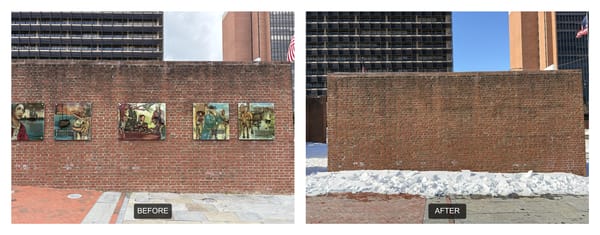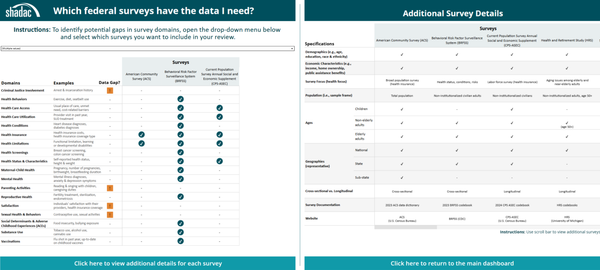A BRFSS Data User Story

Today, we have a data user story on the BRFSS, or the Behavioral Risk Factor Surveillance System. Started in the Reagan era, the BRFSS collects data on health indicators and health-related risk behaviors, chronic health conditions, such as cancer and diabetes, and preventative care from all 50 states, D.C., and three U.S. territories. It is an incredible example of a federal agency, the CDC, working closely with state health departments to collect data throughout the year.
I work in the LGBTQ+ services and advocacy space. We use BRFSS data as well as other CDC datasets to find information on intersections of identity like sexuality, gender, racial, ethnic, and other identities, as well as health status and income level. Considering that there is so little SOGI data collection, BRFSS is a great resource that can actually show an accurate picture of what our LGBTQ+ population looks like and what their unique needs are at every intersection of identity.
The loss of this vital resource would be devastating to the work we do. With so little SOGI information being collected in large-sample surveys that are able to anonymize data and show trends in significant sample sizes, we would lose a lot of information not only showing the needs and the assets of these communities, but we [would] also lose information about the basic existence of people in these populations. We have seen a significant increase in anti-trans legislation being introduced and passed that works to erase places that trans people and queer people and exist freely, publicly, and legally. Getting rid of this representation adds to this trend of trying to erase this community and make sure their basic day-to-day needs cannot be met.
The primary concern for the BRFSS has been changes in sexual orientation and gender identity variables (often called SOGI). STAT News has documented changes to the variable names in the BRFSS. If you are looking for pre-February 2025 data, check the STAT News page or our Data Rescue Tracker, which links to our partners at ICPSR.
The DRP team knows the value of this data for our patrons, for the public, and for the future. We encourage you to talk with everyone about how you use public data, and we would love to hear from you. Fill out our form to tell your data use impact story!




